Greater Manchester Clean Air Zone: Rally held against charges
- Published
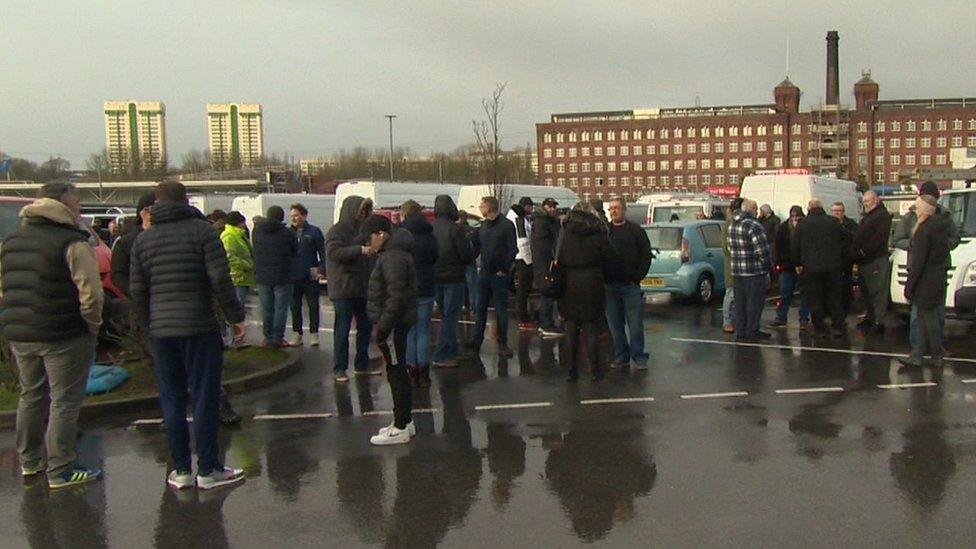
Many people turned up to the event with their vans
About 200 people have attended a rally against the introduction of Clean Air Zone charges in Greater Manchester.
From 30 May, some high-emission vehicles, but not private cars, could be charged, external between £7.50 and £60 daily in plans to cut pollution.
The region's mayor Andy Burnham has recently said the government "needs to do more" to support businesses.
Some £132m of government funding is understood to have been earmarked to support those most affected.
Bowden Spence, from Oldham, who attended the rally near the M60 motorway in Stockport, said: "For me to get to work - there and back - will cost me £70 a week.
"I'm a family man with three kids - I just can't afford it, it will absolutely cripple me."
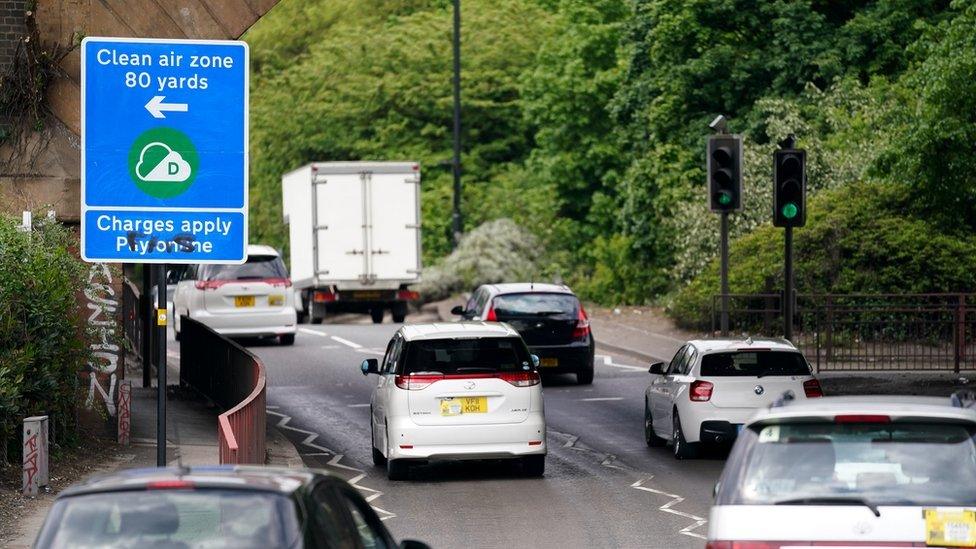
Clean Air Zones have already been introduced in Bath, Birmingham and Portsmouth
The government has told several cities to introduce Clean Air Zones (CAZ) after the UK's highest court, the Supreme Court, ordered ministers in 2015 to take immediate action to cut air pollution.
Already operating in Bath, Birmingham and Portsmouth, they are designed to encourage the use of less-polluting vehicles, including those powered by electric, and more modern petrol and diesels.
Greater Manchester Combined Authority (GMCA) says it has been told to "achieve compliance with legal standards by 2024 at the latest".
Buses, coaches and lorries that are not compliant are expected to be charged from 30 May, with vans and minibuses being charged from June 2023. Private cars and motorcycles will be exempt from the charges.
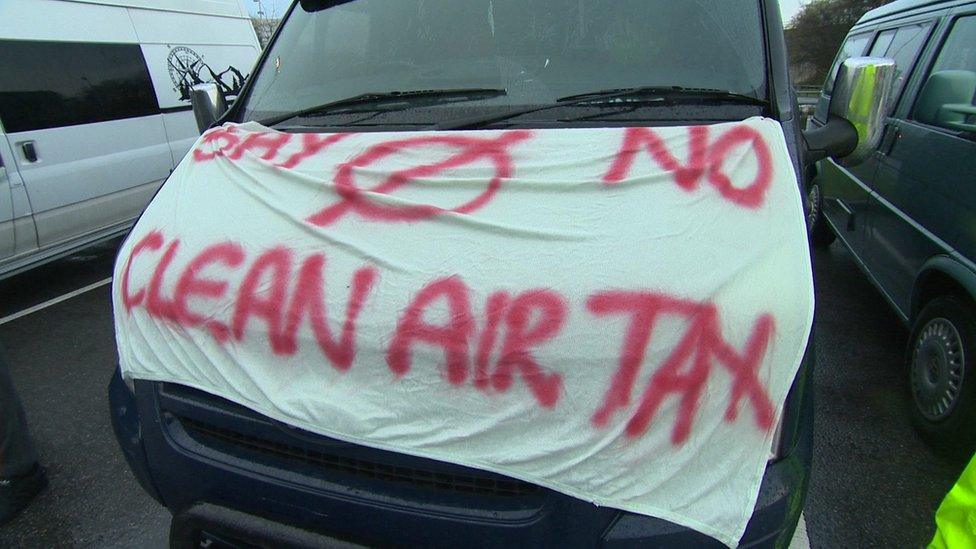
Some drivers are comparing the charges to a tax
Robert Downes, from the Federation of Small Businesses, said they had seen a "massive backlash" locally and that "plans to introduce a CAZ need a major rethink".
He added that they had asked the area's councils in 2020 to pause the CAZ plan until the economic impact of the pandemic had been fully understood, saying that the "the financial agreement with government should never have been signed off last summer".
"If the CAZ is to go ahead, discussions around the financial scheme must be reopened with the relevant ministers, and if a satisfactory settlement cannot be agreed, then the mayor should say no to the scheme," Mr Downes said.
On Thursday, Mr Burnham said the Greater Manchester Combined Authority will "review the situation" this week before deciding on further steps.
He added that supply chain issues in the automotive sector, where production has been hit by a shortage of microchips, were also affecting people's ability to get compliant vehicles.

Why not follow BBC North West on Facebook, external, Twitter, external and Instagram, external? You can also send story ideas to northwest.newsonline@bbc.co.uk, external
Related topics
- Published6 January 2022
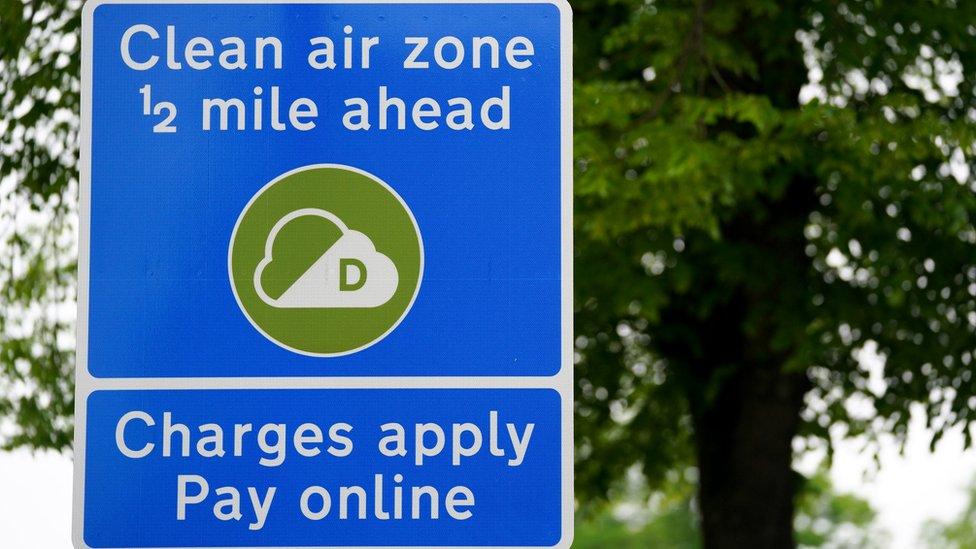
- Published12 April 2019
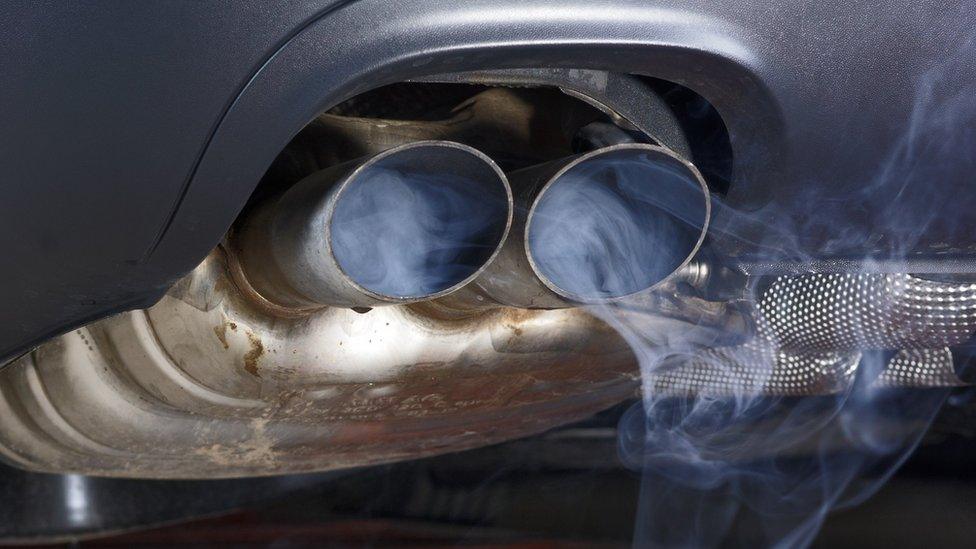
- Published14 June 2021
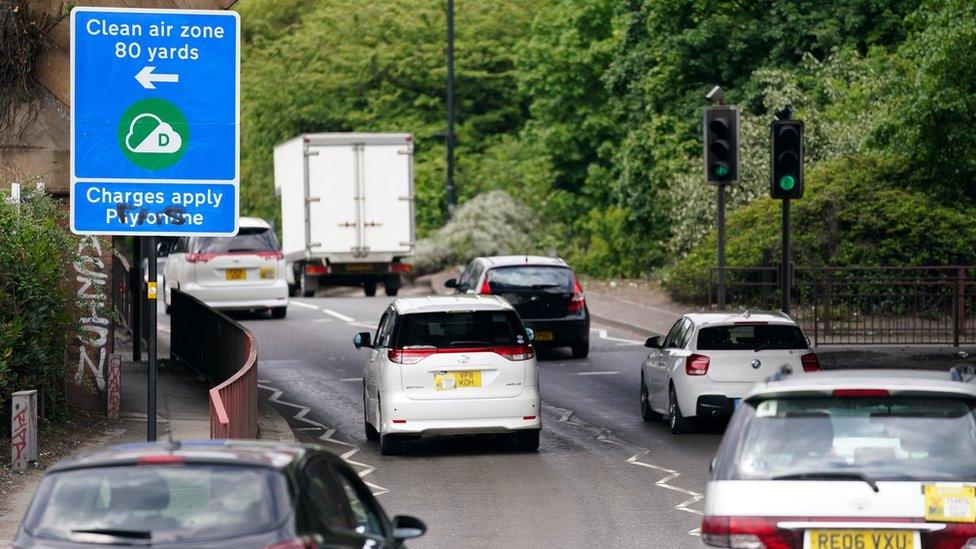
- Published19 March 2021
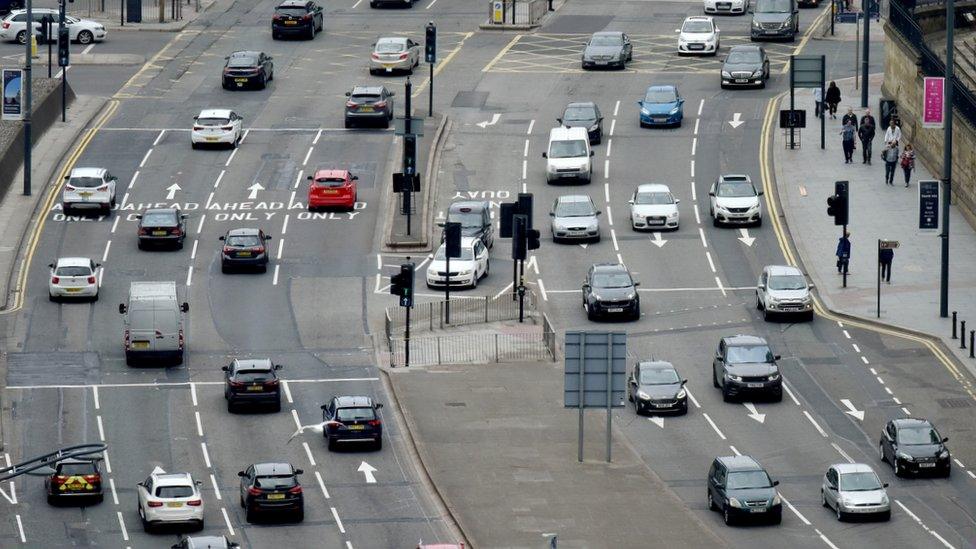
- Published24 December 2020
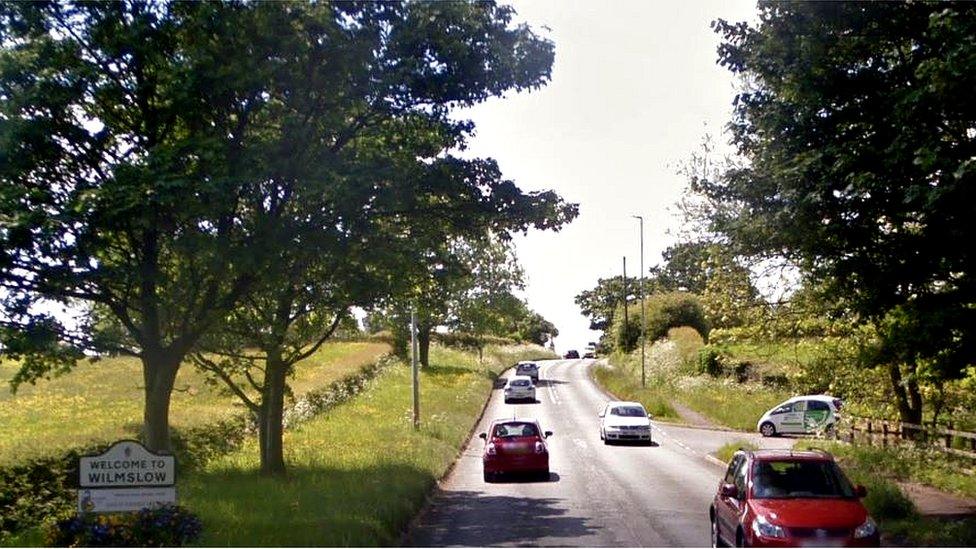
- Published16 July 2019
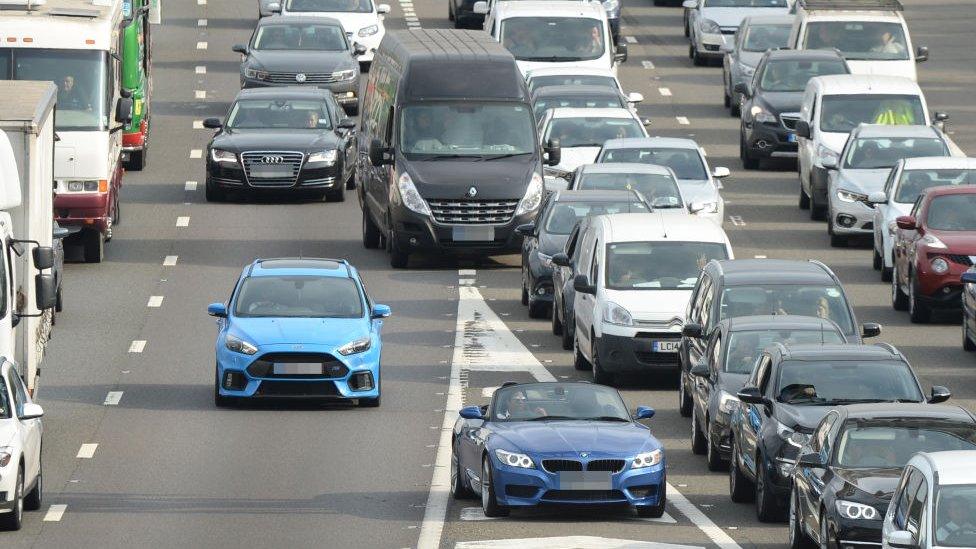
- Published1 March 2019
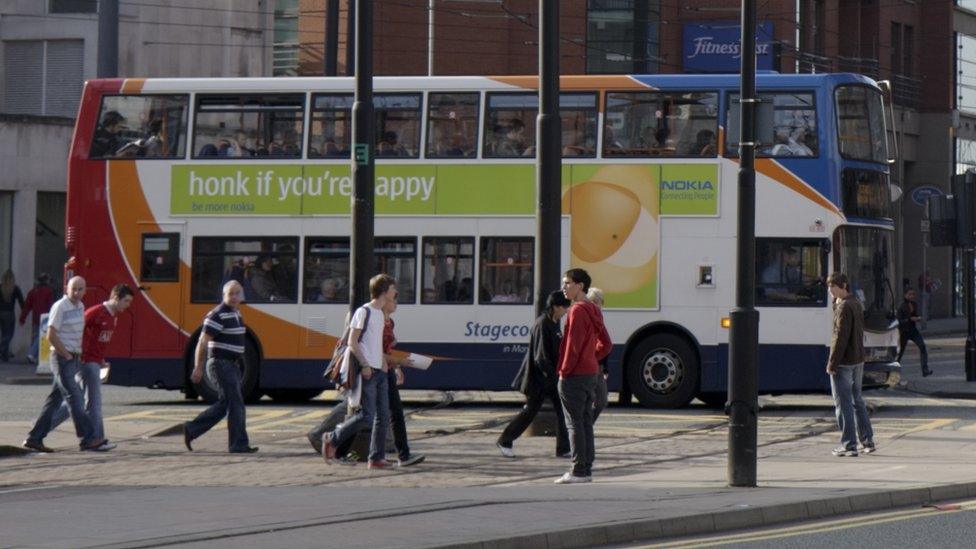
- Published26 February 2019
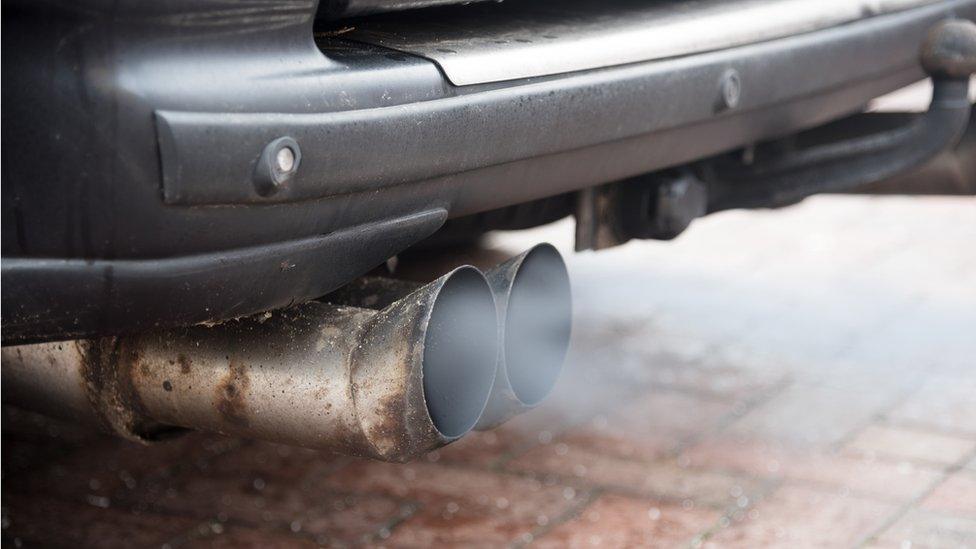
- Published8 September 2018
